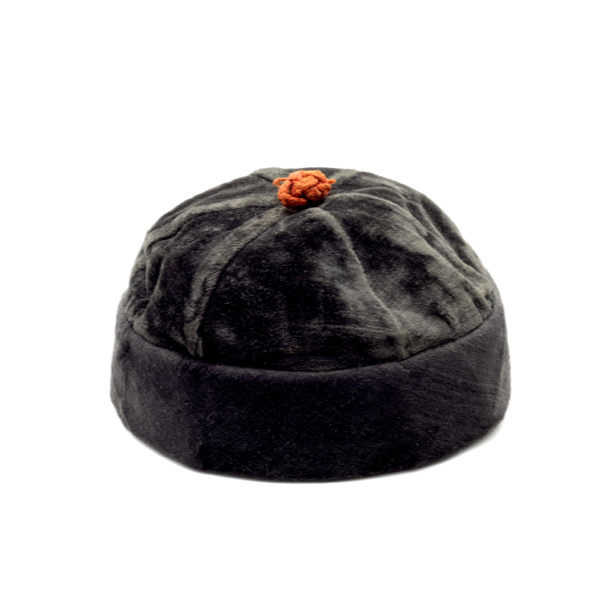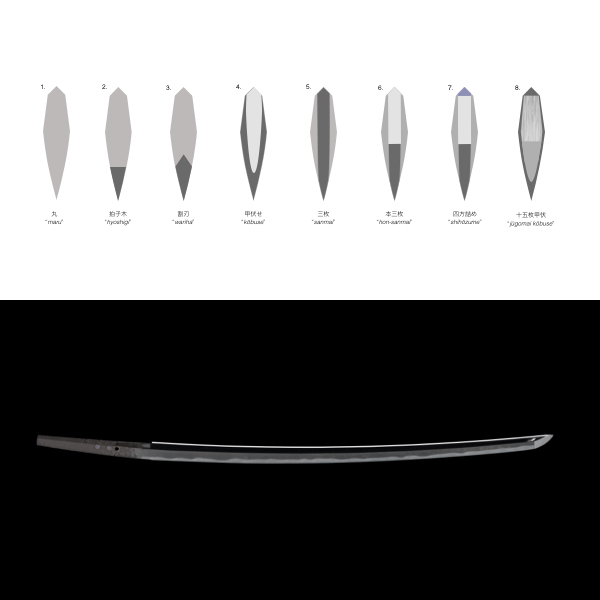
Construction methods of Japanese swords
This article will describe several methods by which the Japanese joined higher and lower carbon steels into their blades.
Asian arms in Dutch master paintings
Dutch masters' fascination with exotic Asian wares shown in a series of paintings.
Early yasurime bori menpo
Russet iron, one-piece construction with decorative grooves.
Sōmen by Ryūtarō
Ryutaro was the son of Fukutake Ichirō (1928-2002).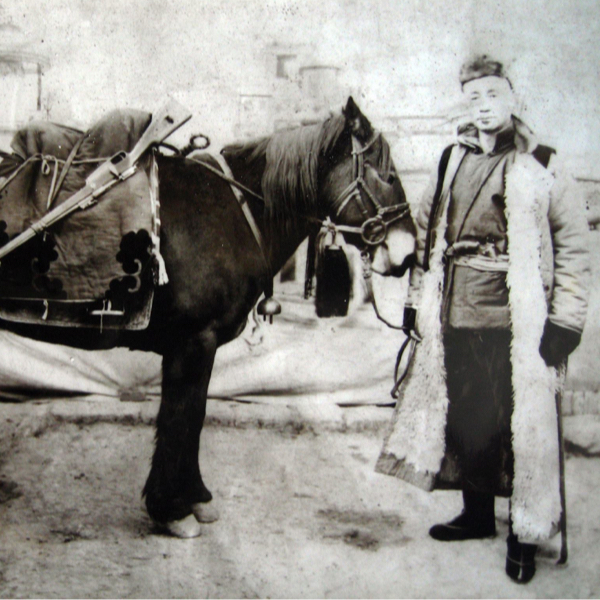
Biāojú (鏢局)
Language: Mandarin Chinese
Source: Pleco dictionary. Old photos.
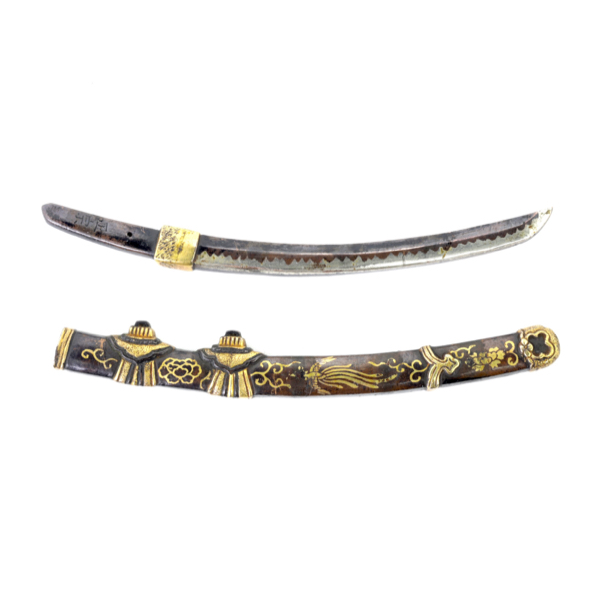
Masamune sword menuki
NBTHK Hozon. Charming menuki in the form of a sword, signed "Masamune" and a tachi scabbard.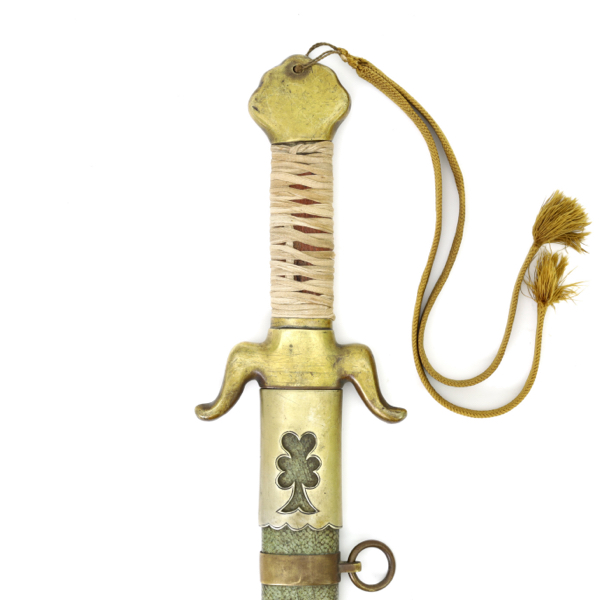
Ma Zhi Zhen Republican duānjiàn
Rare type with stylized bat guard and baitong mounth.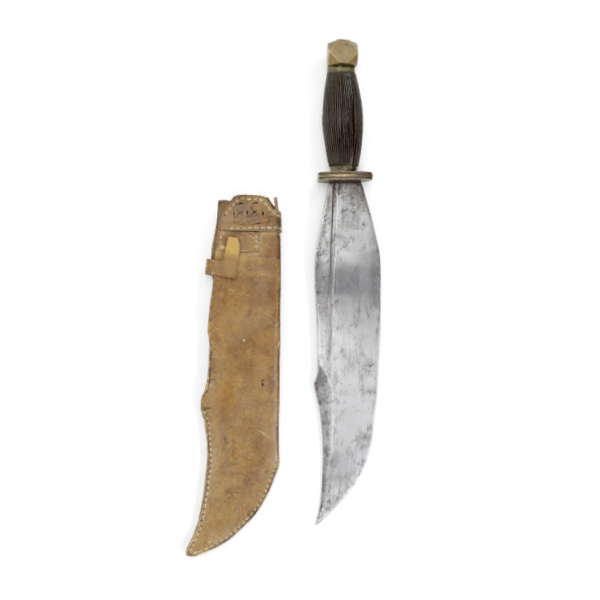
Wide Sino-Vietnamese knife
Large bowie-type blade with prominent raised backedge.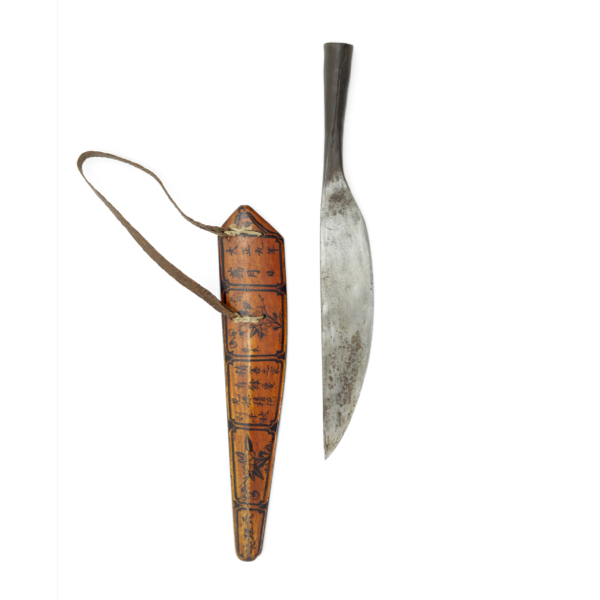
Pingpu presentation knife dated 1921
Heavy socket-hilted plains knife with dated presentation scabbard.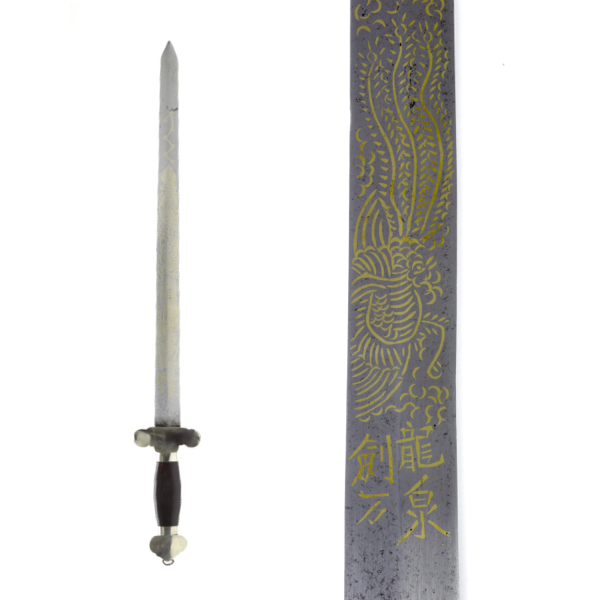
Longquan jiàn by Wan Zi Hao
A Chinese shortsword made by a well-known Longquan maker.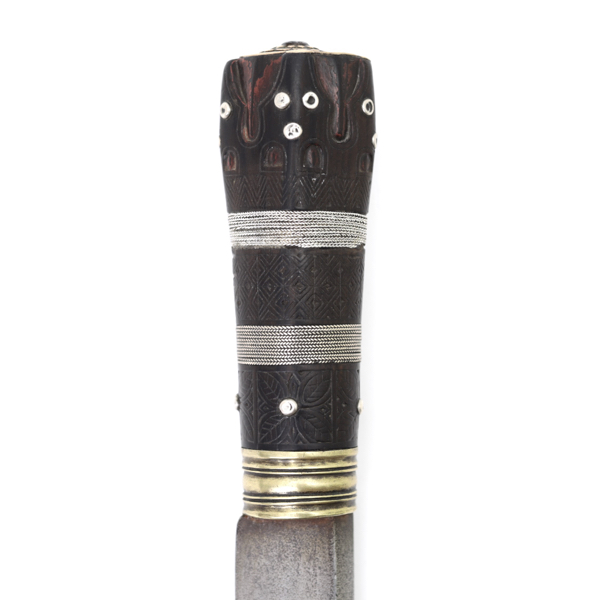
Southern Taiwanese sword
A Taiwanese sword with a long blade of asymmetrical cross-section; the left side is flat and the right side has a ridge on the upper portion of the blade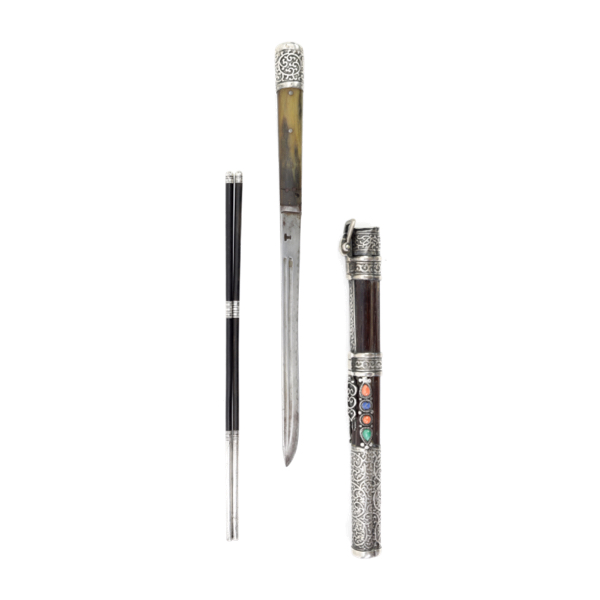
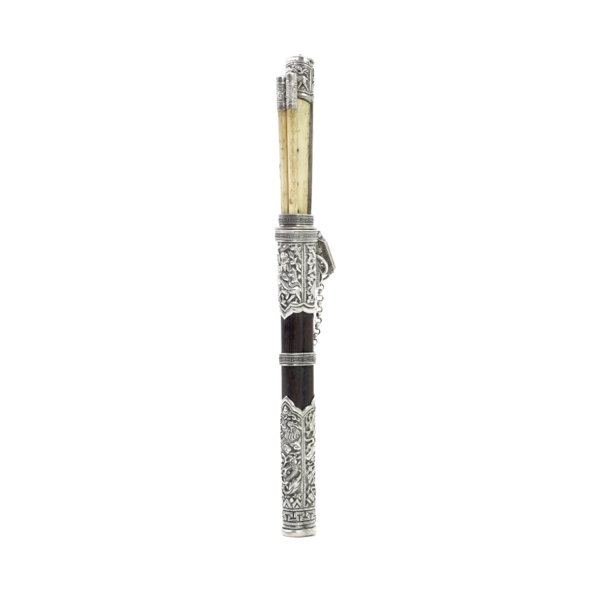
Fine Mongolian trousse
With very detailed silver mounts.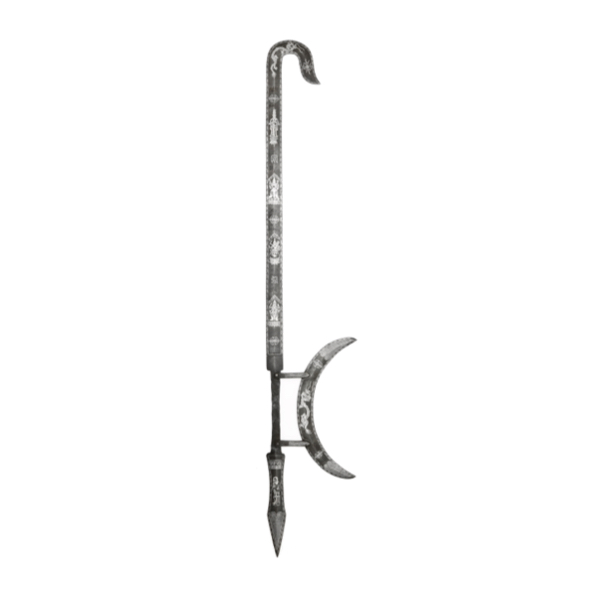
Silver overlaid Chinese hook sword
Typical Chinese hook sword, with seldom-seen fine silver wire overlay.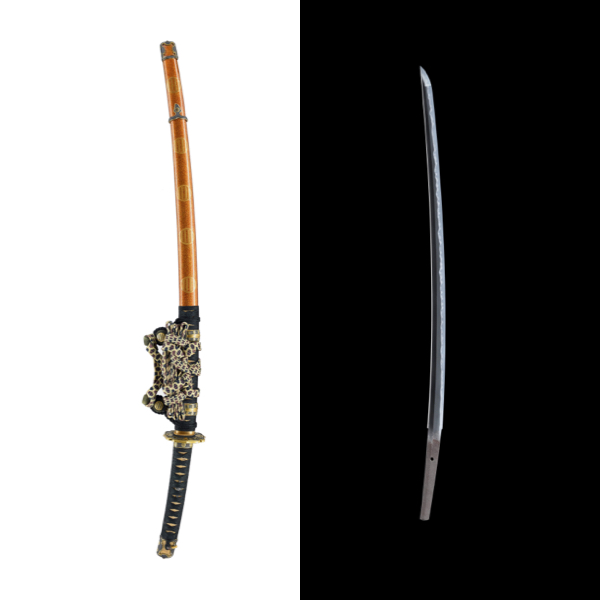
Echizen Kanenori tachi
A fine, Circa 400-year-old blade in 19th-century tachi mountings.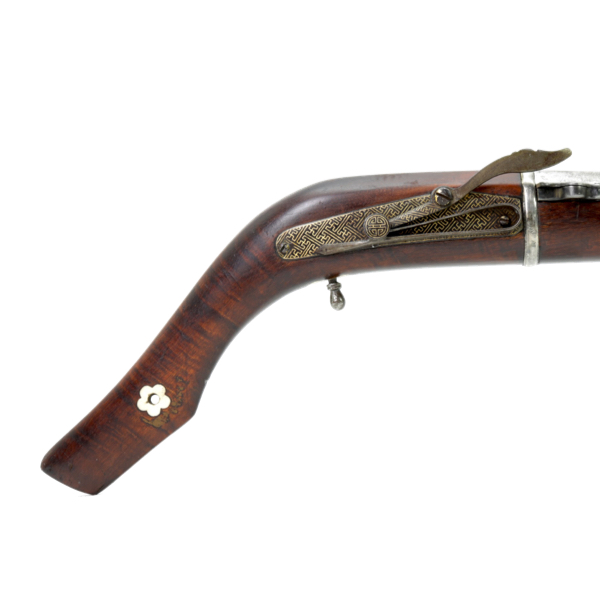
Fine mid Qing matchlock musket
With a golden damascened lock of the Indo-Portuguese type.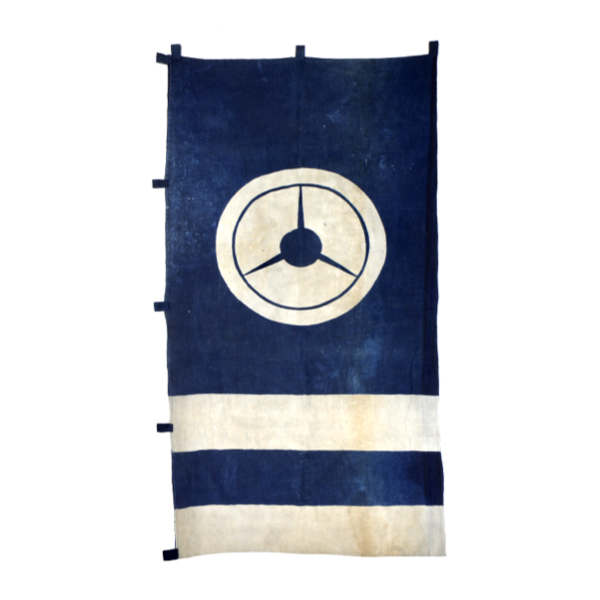
Japanese battle flag
Resist-dyed cotton in white and indigo, with three fans mon.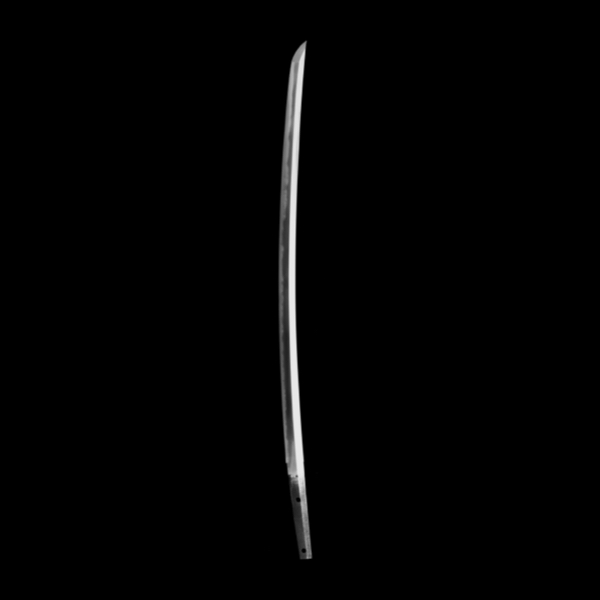
Shiga-Seki Kanenobu katana
Active circa 1492-1501, a smith with Sōshū roots. Ō-wazamono, jō-saku.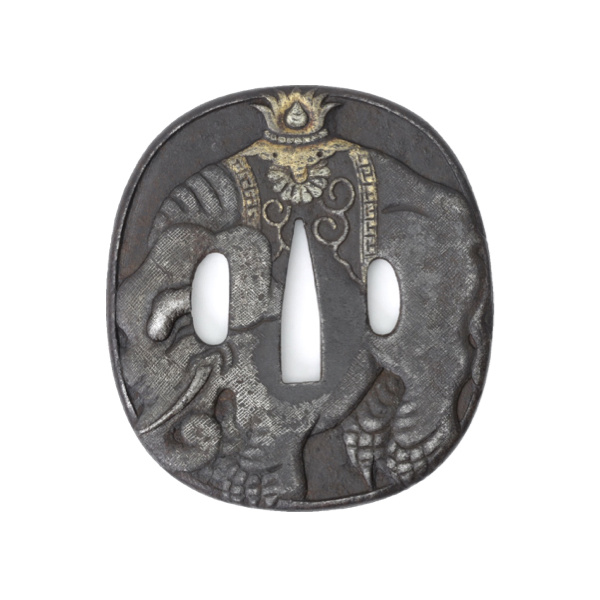
Yasuchika elephant tsuba
A 19th-century copy of an important cultural art object.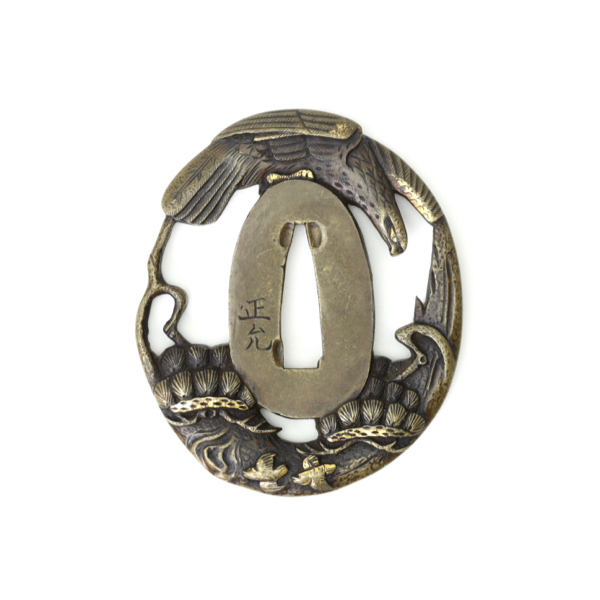
Hawk and pine tsuba
Carved out of copper alloy with details highlighted in gold.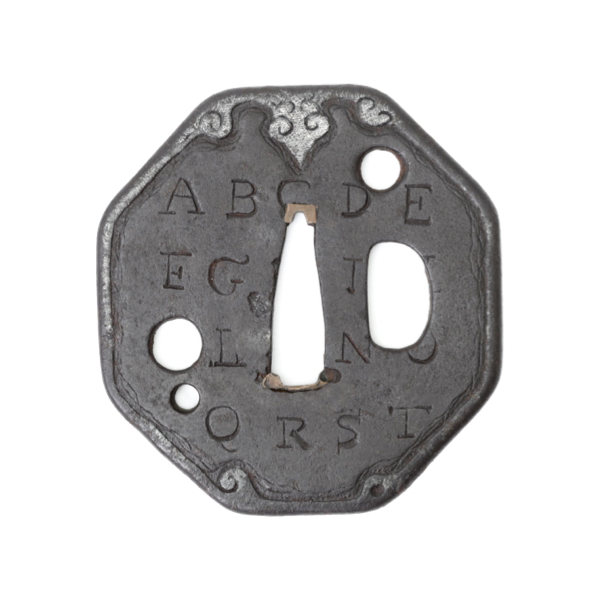
Early tsuba with alphabet
Curious early tsuba with the beginning of the Western alphabet inscribed into it.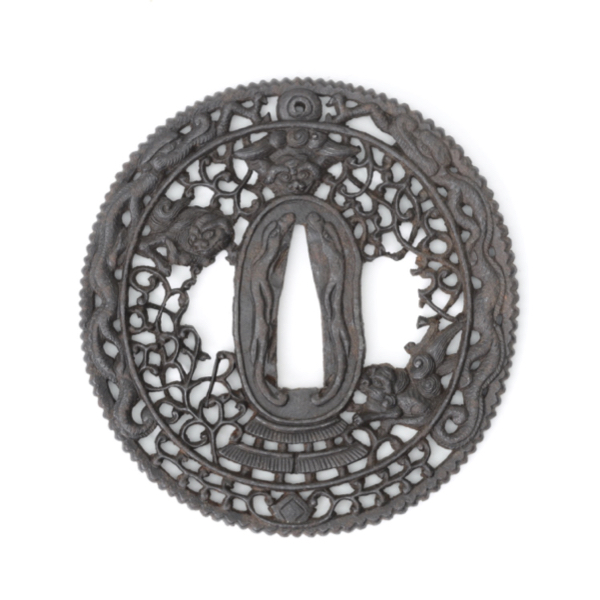
Fine pierced nanban tsuba
Very delicate work with carved guardian lions.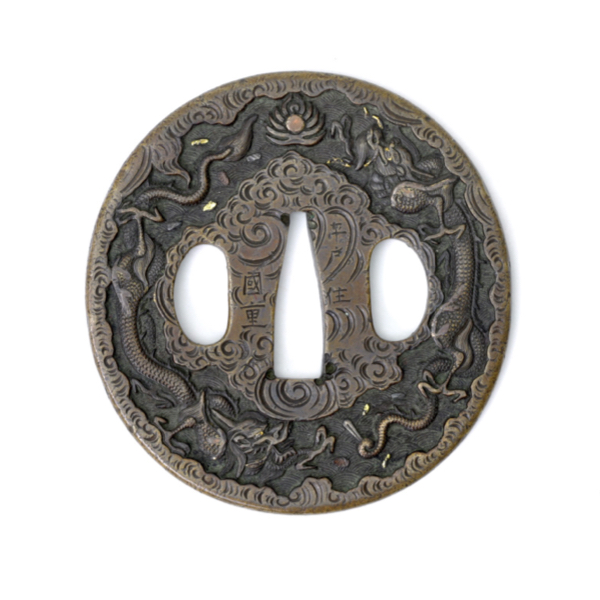
Hirado Kunishige tsuba
Of a copper alloy with a different shade on each side.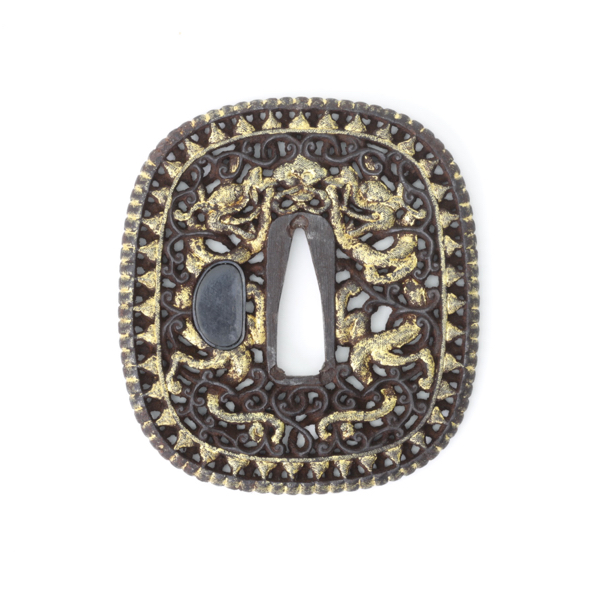
Small Chinese saber guard
Of pierced iron, elaborately cut with lotus petal border.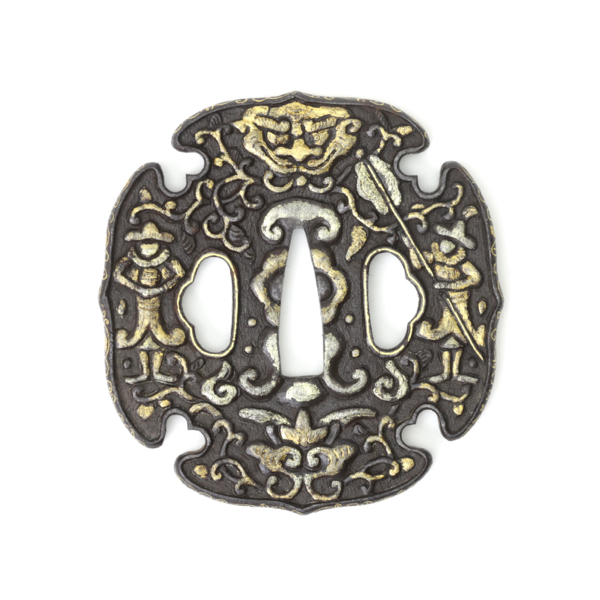
Thick Aoi gata tsuba with foreigners
With fine golden overlays, even on the thick rim.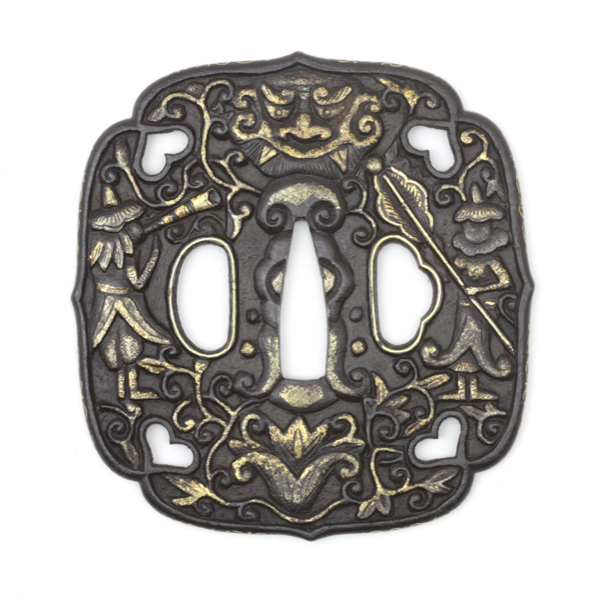
Aoi-gata tsuba with foreigners
Unusual tsuba with foreign figures and Chinese auspicious symbols.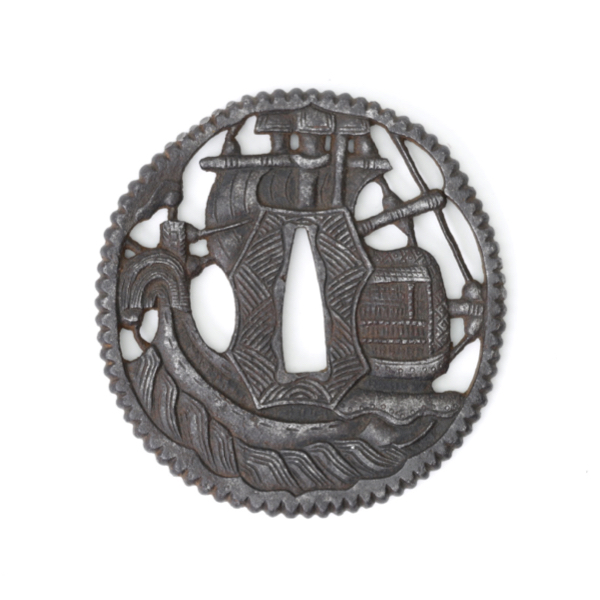
Iron nanban ship tsuba
Pierced and chiseled showing an 18th century European vessel.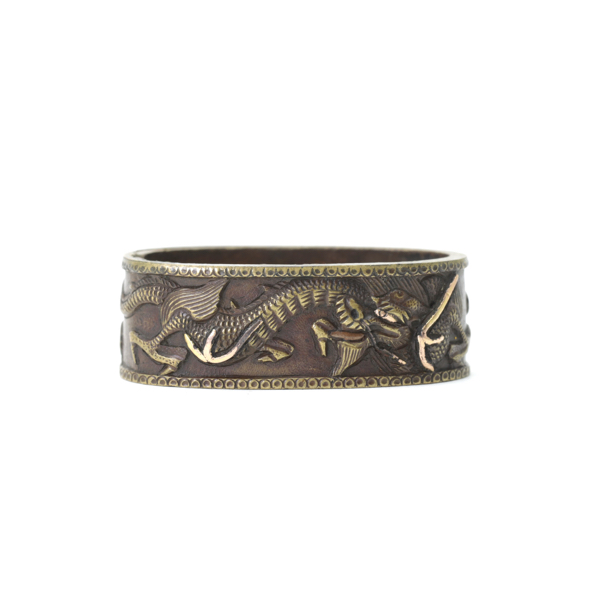
Hirado Kunishige fuchi
One of his classic designs, signed by the maker.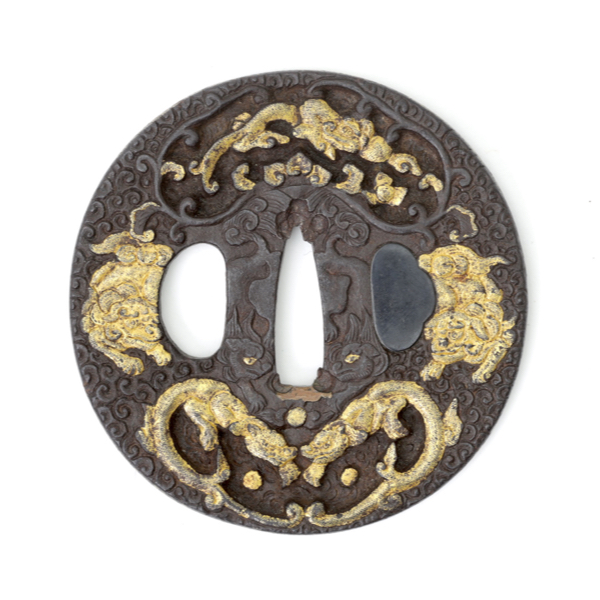
Unusual nanban tsuba
Very finely carved with designs reminiscent of export wares.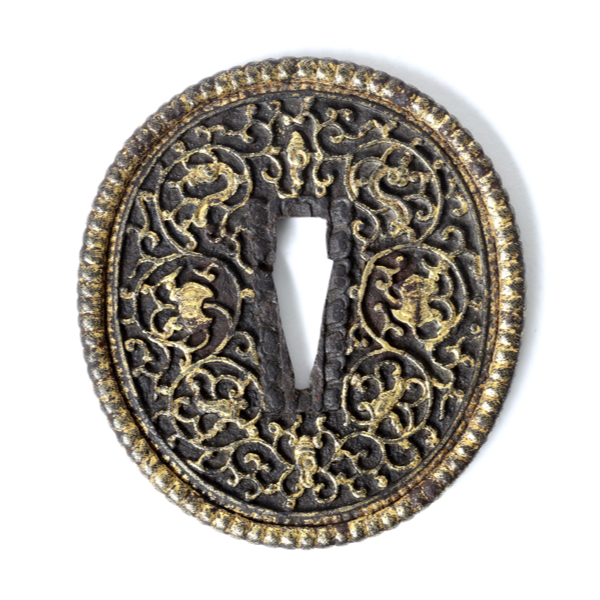
17th century Chinese saber guard
With the swirling arabesque motifs that are typical for this period.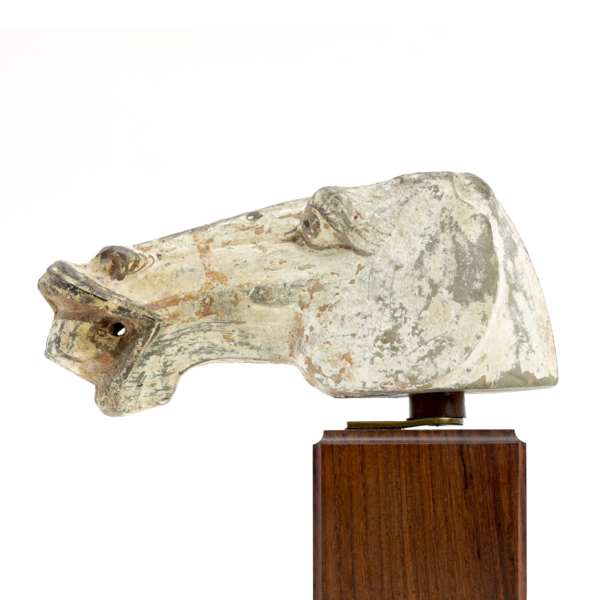
Tang dynasty horse head
Mounted on a custom hardwood stand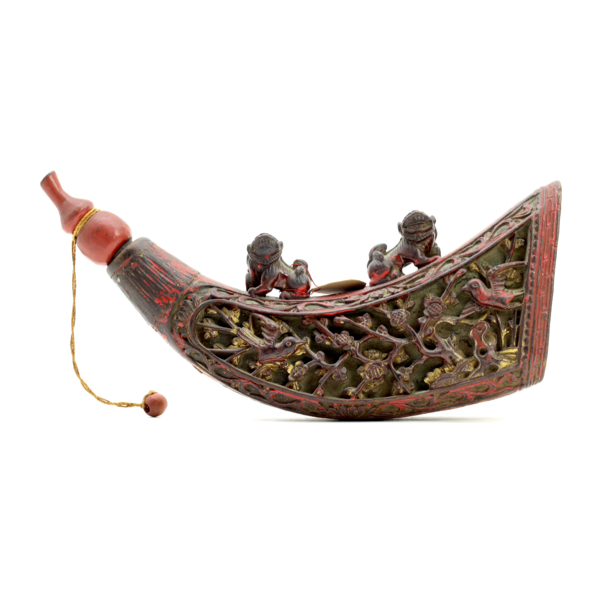
Qing powder flask
Southern Chinese style with birds in plum branches.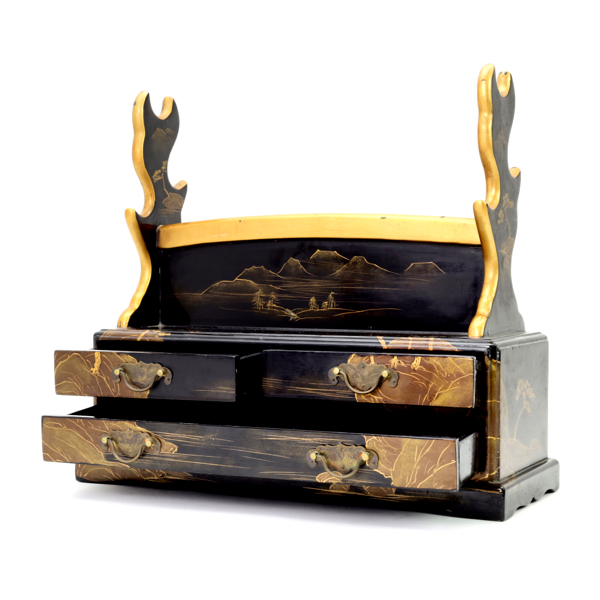
Japanese lacquered sword stand
With scenes of pine trees and three drawers.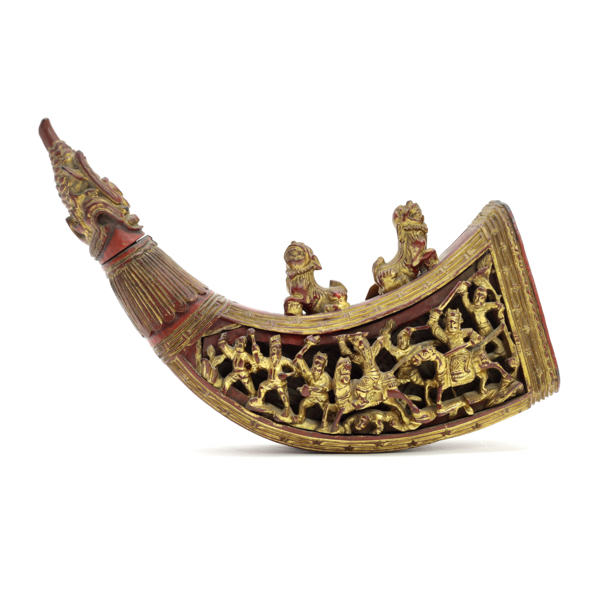
Fine Qing powder flask
Very good example with a finely carved warrior scene.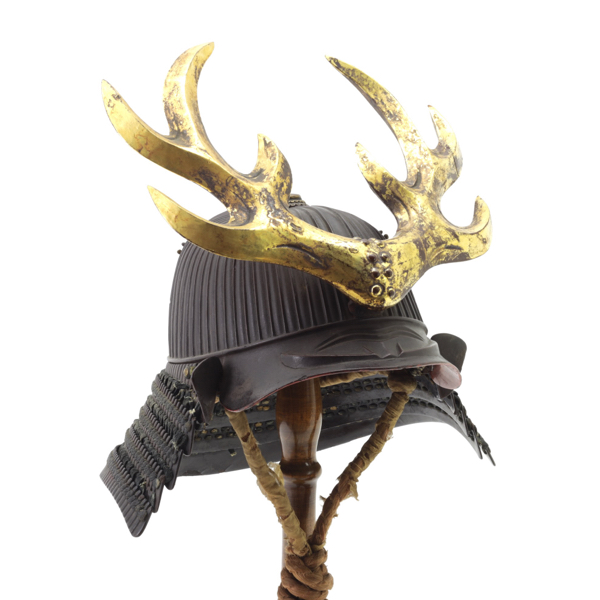
62 plate kabuto with maedate
Each plate with raised rib, the visor embossed with simulated eyebrows.
Chinese export lacquer box
A nice example with unusually fine lacquerwork and a monogram in the lid.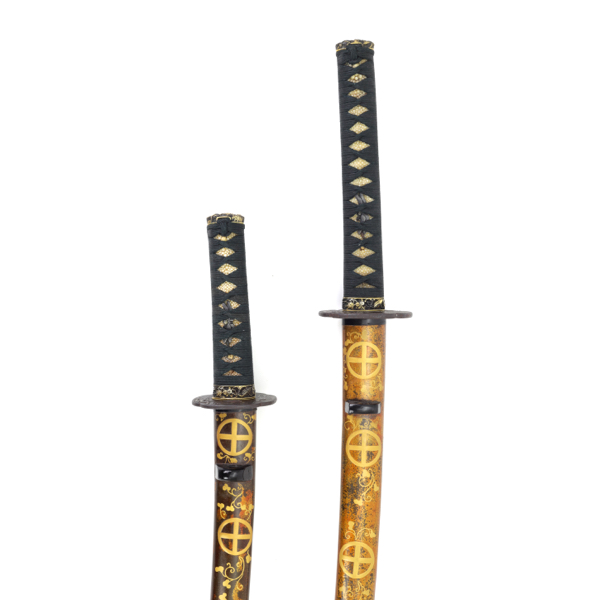
Shimazu mon daishō
A pair of daishō with blades forged by the Takada smiths of Bungo in the north of Kyūshū.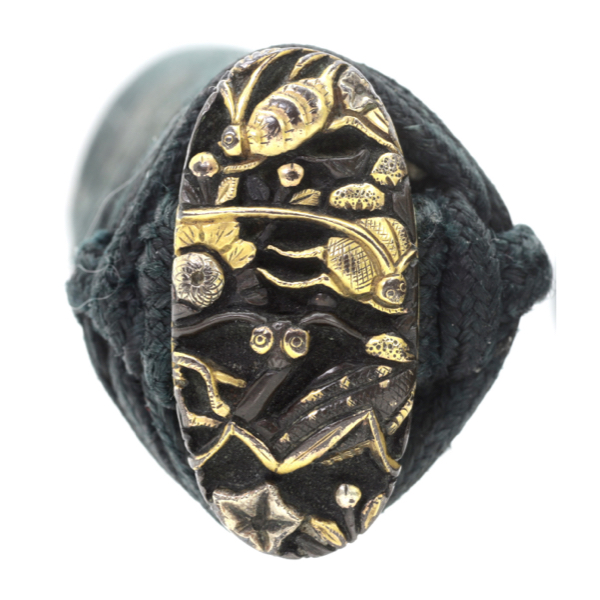
Mino-bori (美濃彫)
Language: Japanese
Source: Michitatsu's Sōken Kishō of 1781
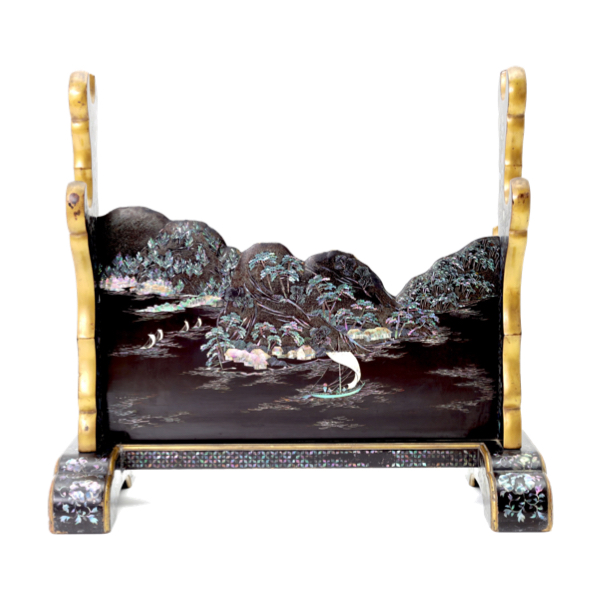
Mother of pearl inlaid katana kake
In black and gold urushi lacquer, with fine mother-of-pearl inlays with aquatic landscapes on both sides.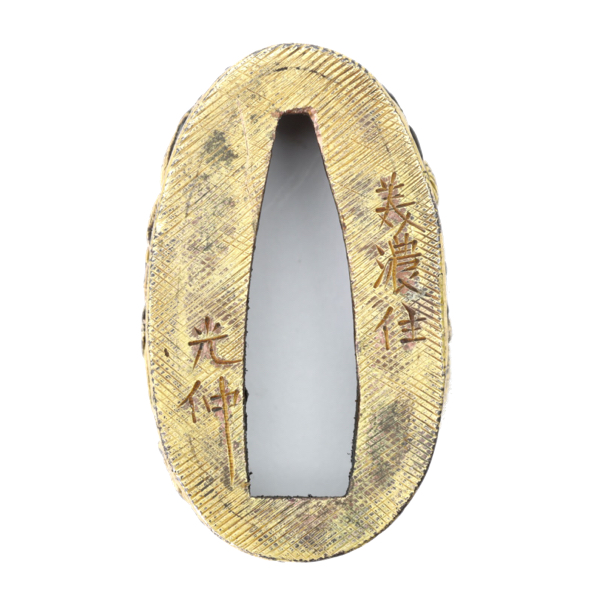
Mino Mitsunaka (美濃光仲)
A Japanese sword fittings artist who worked in the Mino-bori style.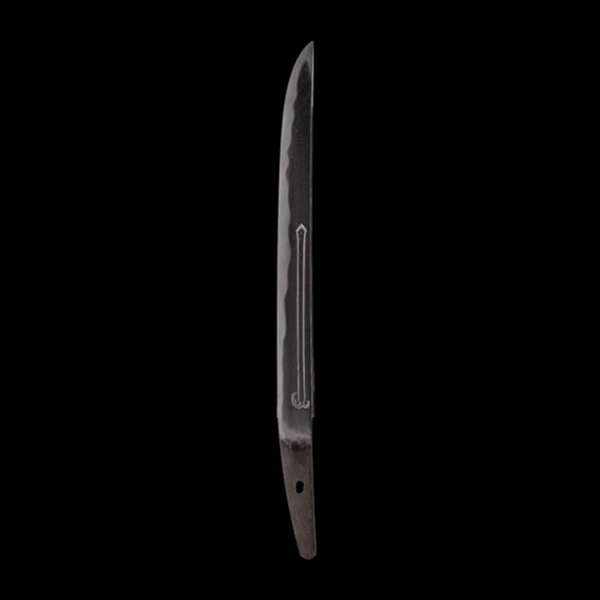
Fine Sōshū tantō
A fine tantō forged in the Sōshū tradition with Hon'Ami Koson sayagaki.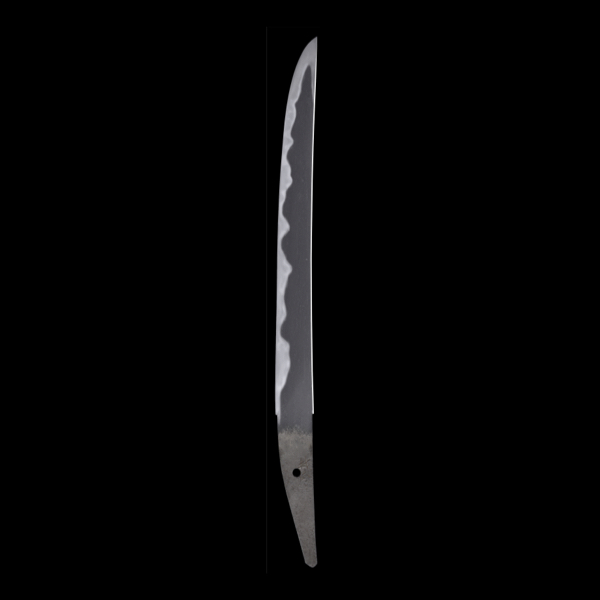
Muramasa masterpiece tantō
A masterpiece by the "cursed" smith, active in the early 16th century.
Qing imperial jade hilted dagger
An extremely rare dagger, made in the Qing court workshops.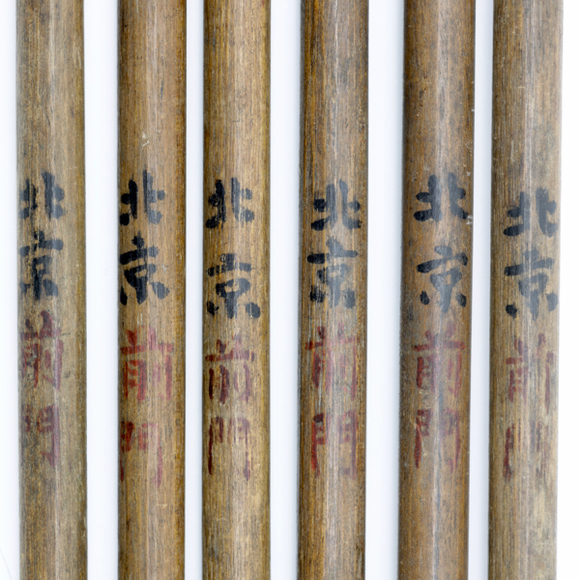
Qianmen war arrows
I am a bit of an arrow fetishist.
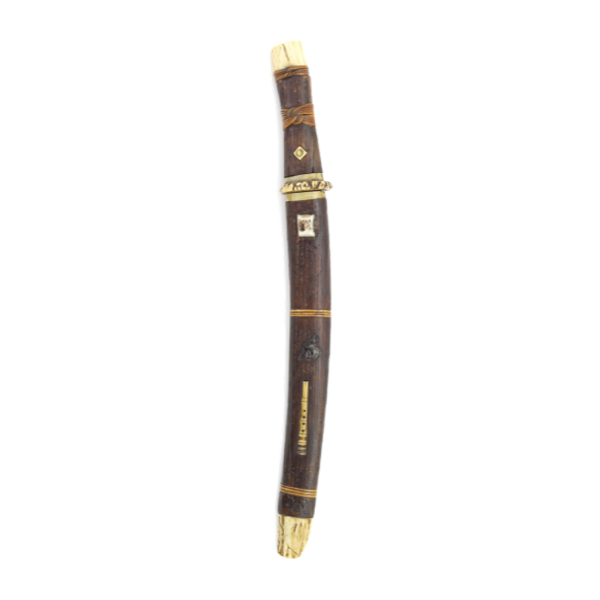
Ainu dagger
Called kuttom-ushbe in the local language. This one mounted in deer antler mounts.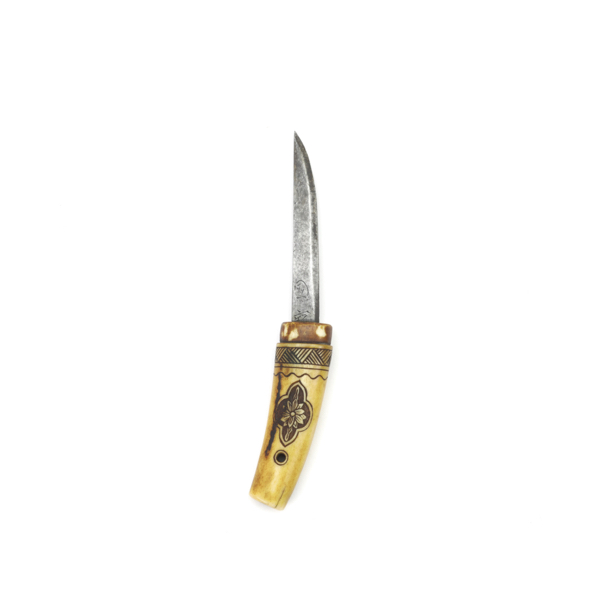
Miniature Ainu makiri
Despite its size it is of remarkably fine workmanship.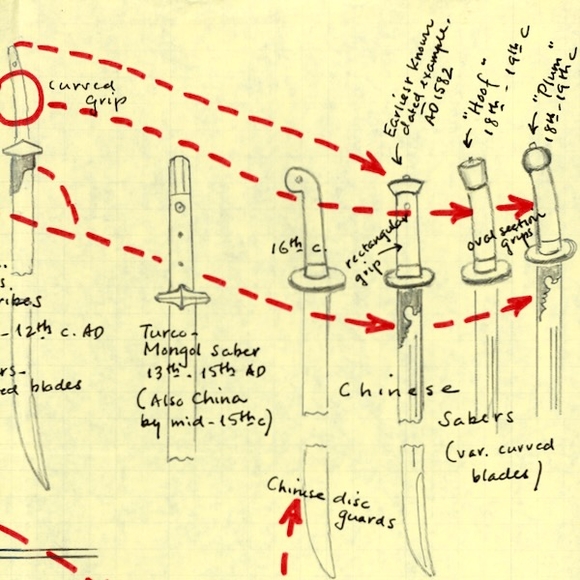
A sketch of East Asian sword evolution
Some time ago, Philip Tom sent me a bunch of his old research files on Asian arms for me to study.
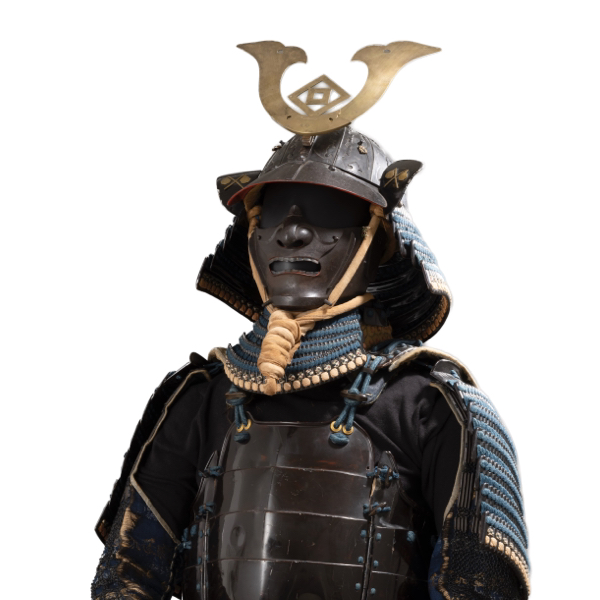
Early Edo samurai armor
Very heavy armor, made for business.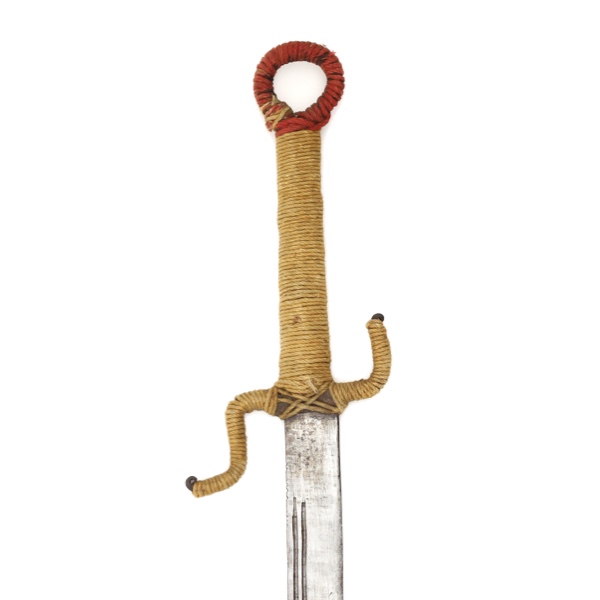
A large Qing dàdāo
Large and heavy example with the notable Umlauff provenance.